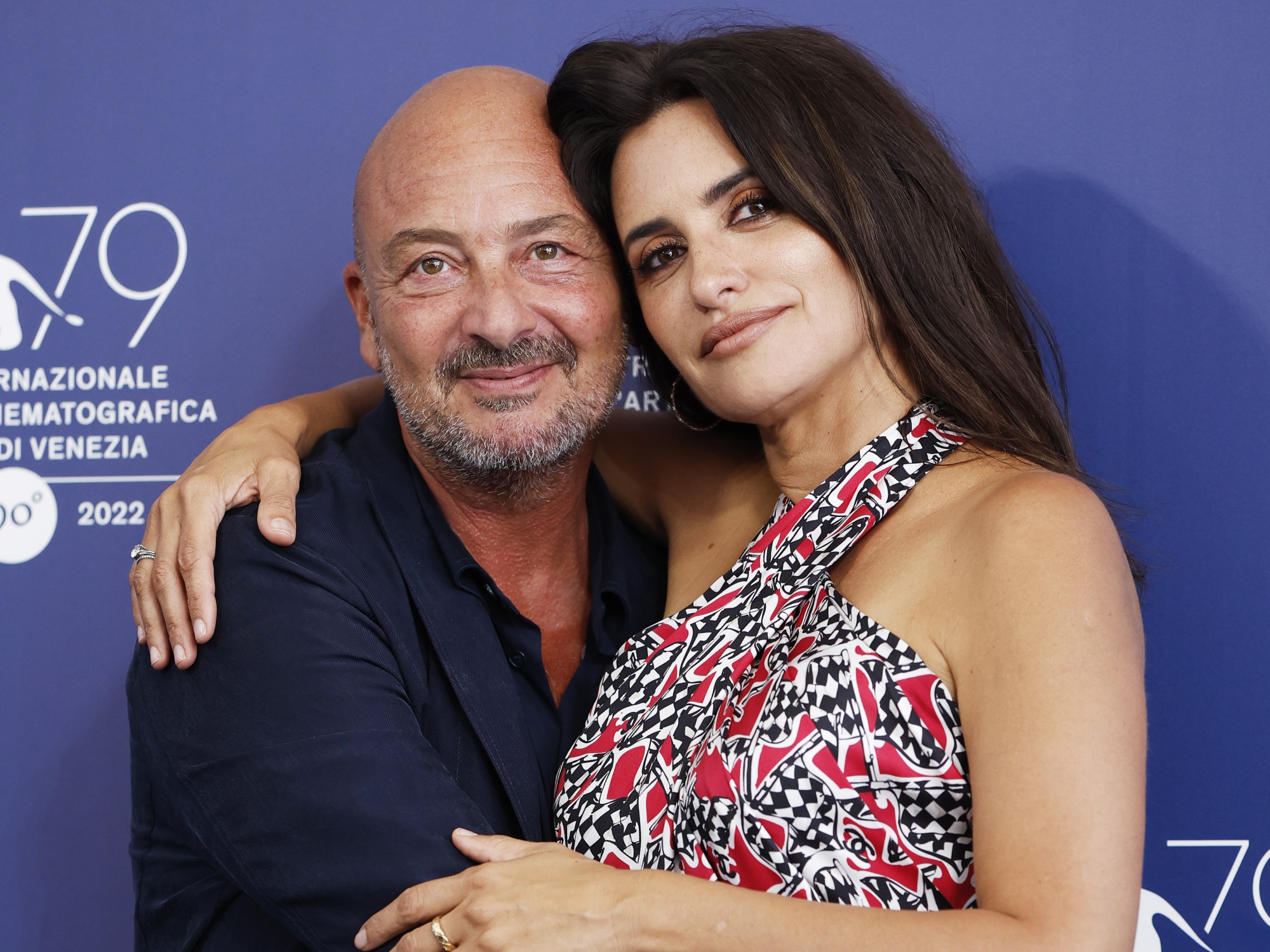
- Festivals
Venice 2022: “L’immensità” by Italian director Emanuele Crialese with Penélope Cruz
A twelve-minute standing ovation saluted Emanuele Crialese’s L’immensità [The Immensity] at the Venice Film Festival, where it was screened in the main competition lineup.
The film, starring Golden Globe nominee Penélope Cruz, was highly awaited by cinephiles. Crialese’s last work, Terraferma, was released 11 years ago.
Born in Rome in 1965, the legendary Italian director is known also for Once We Were Strangers (1997), his first feature-length movie completed right after graduating from the New York University Film School; Respiro (2002), and Nuovomondo (2007).
He is an author with a cult following. Highly respected by critics all over the world, Crialese seems to seek a fair amount of conceptual gestation between one film and the next. That long breath shows time and time again, in his lyrical works.
L’immensita is set in Rome, in the 1970s. While telling the story of a troubled middle-upper class family of five – whose parents (Cruz and Vincenzo Amato) are basically estranged but living under the same roof – it mainly follows the firstborn daughter, Adriana (played by Luana Giuliani). Outside of the house, Adriana prefers to be called Andrea, which, in Italian, is a masculine name.
Her younger sister is anorexic. The middle brother, an overweight alpha kid with an Electra complex, wants to replace the figure of the father in the domestic dominion. Despite the mother’s best efforts – she’s very empathetic, sensitive, sweet, and fun, making her a complex character that Cruz portrays in all sorts of amazing shades – a keen sense of unease rules the household.
Adriana finds solace when she walks through a cane field next to her house and discovers a shantytown where a poor girl, convinced that Adriana is a boy named Andrea, becomes her best friend.
Family drama is alleviated by the music and dance inspired by the Saturday night “variety shows” aired by state RAI television at that time (such as “Senza Rete” or “Canzonissima”). The songs of Raffaella Carrà, Patty Pravo, Adriano Celentano, and Johnny Dorelli are counterpoints to the characters’ plights. In a funny and moving scene, Cruz and the kids dance to Carrà’s hit “Rumore”, the colorful choreography worthy of a domestic La La Land.
Much has been said about L’immensità being Crialese’s autobiography and, supposedly, his coming out – he was born female, named Emanuela. Crialese, denying nothing about himself, disagrees with the self-reflecting hypothesis. “At the core of all my films there is a family, often fragmented, full of problems, sometimes dysfunctional,” he said during the press conference in Venice following the screening.
Then, he added: “I think L’immensità represents the culmination of a discourse I’ve been doing throughout the years, an exploration, that is, on a type of family unable to be protective, where the children can’t find a sense of security, where there is a lack of love between the parents and a lack of complicity and maturity by these reference-figures during our formative years.”
The director confirms that, certainly, he identifies with Adriana. His own mother, who supported her/him when he was young and suffered a lot because of his “diversity” (again, it was the 70s), informed the role of Clara, Penélope Cruz’s character (who, by the way, acts very well in the Italian language, leaving intact her Spanish accent, since Clara was actually born in Spain).
However, Crialese insists that his new work for the cinema is not a “transitional” story about a girl who wants to become a boy. It’s a family drama and a coming-of-age story. In fact, he didn’t want to cast a girl who would not recognize herself in her gender, opting instead for a “tomboyish” sort of person, as Luana Giuliani is, “a girl who likes male sports and activities,” the director explains. “Luana, for example, is a motorcycle champion and races in the Super Moto, a sport dominated by males. You need grit and courage, as Adriana/Andrea has.”
The casting of Penélope Cruz in the role of the mother was not accidental for Crialese: “I think the strength of Penélope’s performance lies exactly in the willingness to abandon control and working without the proverbial net,” says Crialese. “Penélope, beyond her fantastic talent and technical skill as an actress, was able time after time to react to the children’s expressive proposal. Thanks to her reactivity, the scenes are alive and truthful.”
Penélope Cruz, moved by Crialese’s script and its poetic sense of domestic inner workings, immediately jumped in. “As a mother of young teenage children,” she told Italian newspaper La Repubblica, “I feel on my skin everything that is told in this beautiful film. Clara does her best with the kids, though suffering from her husband’s infidelity — and is a victim herself of domestic violence, which is an all-too-common secret in our lives. She does her best, especially with Adriana, and I understand her deeply.
The Spanish actress added: “Unlike today, the relationship between children and parents was still remote in the 70s. Kids wouldn’t open up to their parents. The boundaries were there, clear, and cold. Today we allow children to tell us everything, and open up as friends. But I think that kids will always benefit from their parents’ maturity: you’re the adults, we are just children. Please help us.”

